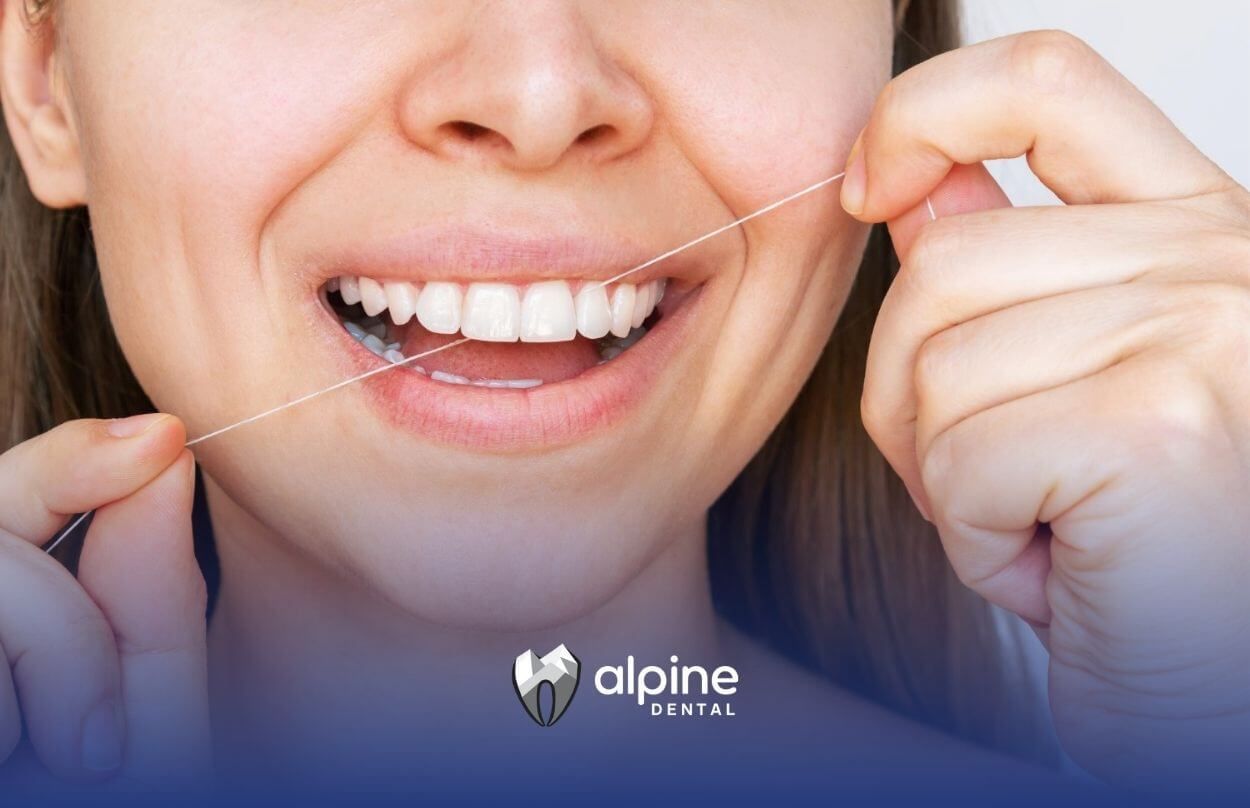Dental Implant Infections: Causes, Warning Signs & Expert Treatments
A dental implant infection doesn’t just affect your gums — it can put the entire implant at risk. Fortunately, with proper care and timely treatment, most infections can be managed effectively.
One of my patients once dismissed gum bleeding as “normal.” By the time they visited Alpine Dental, the infection had advanced. With surgery and bone regeneration, we preserved their implant — but it could have been avoided with early attention.
What Is a Dental Implant Infection?
Understanding the Issue
A dental implant infection happens when bacteria build up around the implant site. This condition is often called peri-implantitis. It affects the gum and bone that support the implant, and if left untreated, it can lead to implant failure.
Why It Matters
Unlike a cavity that only affects one tooth, an implant infection can compromise the implant and surrounding bone. That’s why recognizing early signs and seeking treatment is so important.
Causes of Dental Implant Infections
Poor Oral Hygiene
Not brushing and flossing properly around the implant allows bacteria to grow, leading to infection.
Smoking
Smoking slows healing and reduces blood flow, making implants more vulnerable to infection.
Medical Conditions
Health issues like diabetes or a weakened immune system can increase the risk of dental implant complications.
Surgical Factors
Sometimes, improper placement of the implant or lack of sufficient bone support can contribute to infection.
Symptoms of a Dental Implant Infection
Early Warning Signs
- Red or swollen gums around the implant
- Tenderness or bleeding when brushing
- Persistent bad breath or bad taste in the mouth
Advanced Symptoms
- Pus around the implant site
- Loose or wobbly implant
- Pain while chewing
- Receding gums or exposed implant threads
If you notice any of these, it’s important to see your dentist right away.
How Dental Implant Infections Are Treated
Professional Cleaning
Your dentist may recommend a deep cleaning to remove plaque and bacteria around the implant.
Antibiotics
In many cases, antibiotics are prescribed to control infection and stop it from spreading.
Surgical Treatment
If the infection is severe, surgery may be needed to clean the area, regenerate lost bone, or even remove the implant if it cannot be saved.
Preventing Dental Implant Infections
Daily Care Tips
- Brush twice a day with a soft-bristle toothbrush
- Floss carefully around the implant (using implant-safe floss or interdental brushes)
- Use an antibacterial mouth rinse
Lifestyle Choices
- Quit smoking to promote healing and reduce infection risk
- Manage medical conditions like diabetes with your physician’s guidance
- Keep up with regular dental checkups
Professional Maintenance
Your dentist may recommend more frequent cleanings if you have a higher risk of infection.
Dental implant infections can be scary, but the good news is they’re usually preventable with good oral hygiene and regular dental visits. If caught early, most infections can be treated without losing the implant.
At Alpine Dental, we specialize in dental implants, emergency dental care, and broken tooth repairs. Our team in New Jersey is dedicated to helping patients restore and protect their smiles. If you’re worried about your implant or are considering treatment, schedule a consultation today with the best dentist in New Jersey.
FAQs
1. How do I know if my dental implant is infected?
Look for red, swollen gums, pain when chewing, or pus around the implant site. If your implant feels loose, see a dentist immediately.
2. Can an infected dental implant be saved?
Yes, if caught early. Treatments like deep cleaning and antibiotics can often resolve the infection. In severe cases, surgery may be required.
3. How long after surgery can an implant get infected?
Infections can happen soon after surgery or even years later. That’s why ongoing oral care and checkups are essential.
Sources:
- https://pmc.ncbi.nlm.nih.gov/articles/PMC5379828/
- https://www.webmd.com/oral-health/what-to-know-about-dental-implant-complications-risks
- https://www.mayoclinic.org/tests-procedures/dental-implant-surgery/about/pac-20384622
- https://pmc.ncbi.nlm.nih.gov/articles/PMC11426911/
- https://www.healthline.com/health/dental-implant-problems
- https://www.sciencedirect.com/science/article/pii/S0887217115000967




